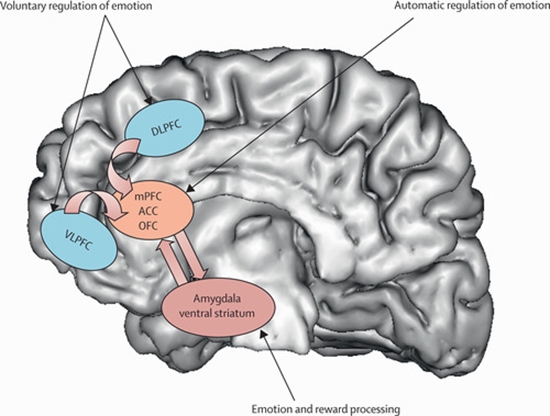Antidepressant effects of magnetic resonance imaging--based stimulation on major depressive disorder: a double-blind randomized clinical trial
this study demonstrated the antidepressant effects of DWI and T1 MRI protocols. Our results may point to usefulness of MR stimulation for clinical use in patients with major depressive disorder

Antidepressant effects of magnetic resonance imaging (MRI) based stimulation have been reported in animal studies, but no human studies are available on subjects with major depressive disorder. Here, the efficacy of two diagnostic MRI protocols (echo-planar diffusion-weighted imaging (DWI) and T1-weighted imaging) was assessed in patients with major depressive disorder. In this double-blind randomized clinical trial, 51 patients with clinically proven major depressive disorder were randomly enrolled into three equal groups. All patients were receiving a selective serotonin reuptake inhibitor as the only antidepressant treatment. The first group received echo-planar DW stimulation (DWI group), the second group received T1-weighted stimulation (T1 group), and the third group experienced a similar condition without receiving any magnetic stimulation (sham group). The Hamilton rating scale for depression (HAMD24) and Beck depression inventory (BDI) were used to assess the effect of MR stimulation on depressive symptoms. In comparison to baseline, mean HAMD24 and BDI scores significantly (p < 0.001) decreased in the DWI (by 35% and 39%) and T1 (by 38% and 39%) groups 2 weeks after MR stimulation. In the sham group, reduction in HAMD24 (19%, p = 0.04) and BDI score (15%, p = 0.07) were lower than the MR stimulation groups. Two weeks after the MR experiments, changes in mean HAMD24 score and BDI score were significantly (p < 0.05) higher in subjects treated with MR stimulation (DWI or T1) vs. sham group. In conclusion, this study demonstrated the antidepressant effects of DWI and T1 MRI protocols. Our results may point to usefulness of MR stimulation for clinical use in patients with major depressive disorder.






ارسال به دوستان